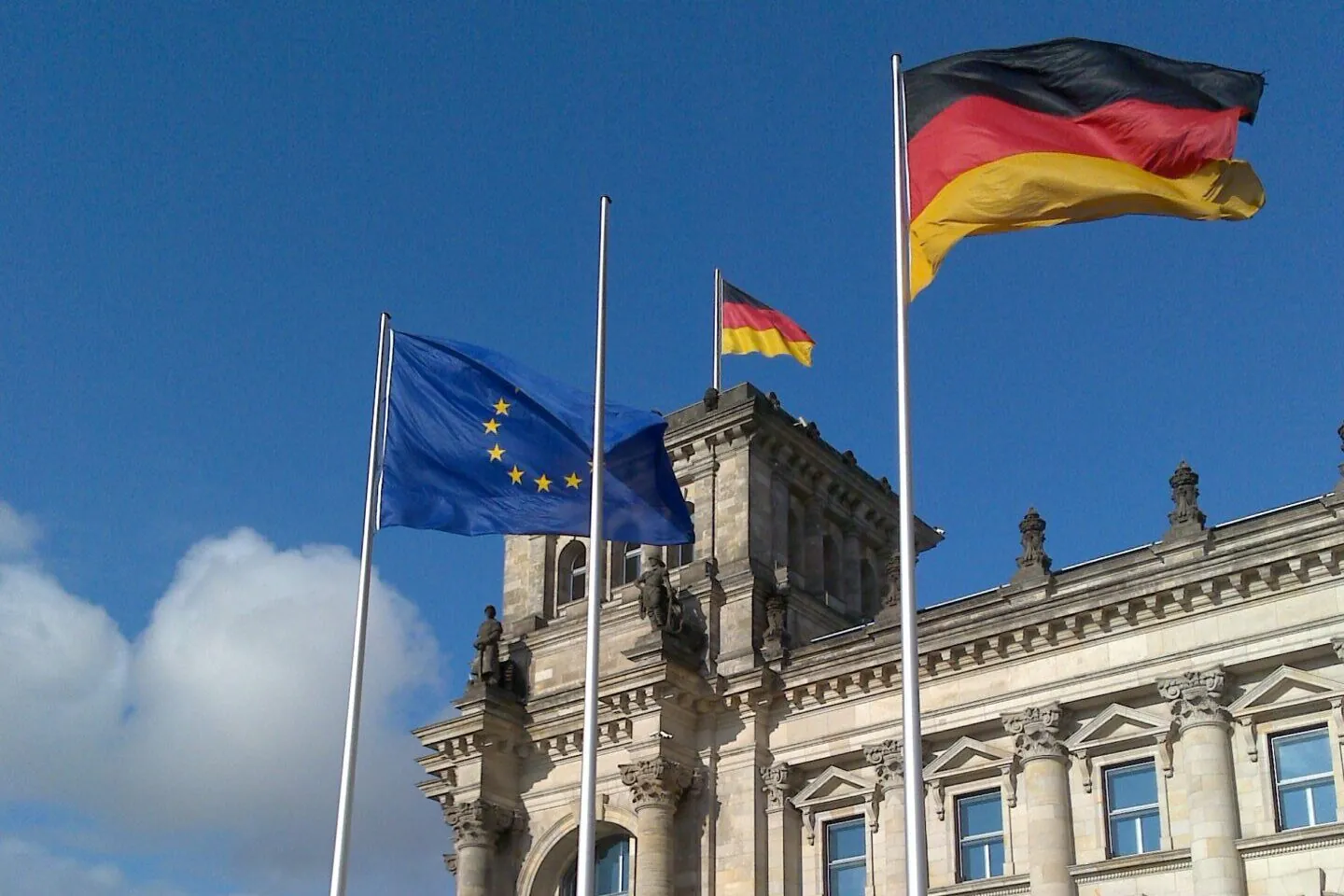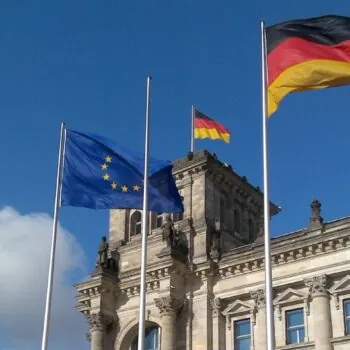Recalibrating how the EU does foreign policy to reflect new geopolitical realities is vital for achieving economic security and prosperity. The incoming German government can continue strengthening its geopolitical agency and that of the EU. This involves enhancing institutional coordination, aligning partnerships, pooling diplomatic resources and countering disinformation.
Germany and the EU face multiple international crises and increasing geopolitical complexity, creating both security and economic risks and opportunities. Meanwhile, the direct impacts of climate change exacerbate social and political fragilities within the EU and its neighbouring states. As the EU seeks to boost its clean tech industry, new international tensions are emerging, particularly with China and the US, two of the sector’s biggest competitors. At the same time, policy implementation is increasingly intertwined with international policy areas such as finance, trade, standard-setting as well as economic, societal and energy security.
Consequently, climate change is increasingly shaping geopolitics. To ensure the prosperity and economic security of Germany and the EU in this emerging “new climate geopolitics”, it is essential to enhance Europe’s strategic autonomy and competitiveness while fostering a resilient multilateral system with shared rules and goals.
Achieving this will require greater levels of strategic alignment, coherence, and coordination between initiatives of the new Commission, such as the upcoming global climate and energy vision, Clean Trade and Investment Partnerships and the New Economic Foreign Policy, as well as between internal and external policies Most importantly, it requires adapting the conduct of foreign policy at both EU and Member State level to enhance effectiveness and agency/capacity to act.
After the elections of a new German parliament on 23 February and a new Federal government formed afterwards, the upcoming governing coalition can drive these efforts forward, showcasing leadership within the EU and ensuring more efficient and impactful action.
Germany`s role in addressing changed geopolitics of climate change at the EU level
To enhance the structural coherence of Germany’s approach to the geopolitics-climate nexus across all its international engagements, the German government of Social Democrats, Greens, and Liberals coined an approach called “Climate Foreign Policy” and released a corresponding cross-government strategy on 6 December 2023.
The recently released (draft) manifestos of Christian Democratic Party and Christian Democratic Union (CDU/CSU), Social Democratic Party (SPD), Alliance 90/ The Greens (Grüne) and Liberal Democratic Party (FDP) point towards the relevance of Germany’s and the EU’s capacity to act effectively in a changed geopolitical environment.
This can serve as basis for the incoming German government to enhance Germany’s and the EU’s prosperity and economic security in the face of multiple international threats through engagement in the nexus of geopolitics and climate and support the early identification and alignment of potentially conflicting objectives.
Enhancing the EU’s processes and institutions for effectiveness and impact
The EU and the German government face similar governance challenges. Germanys’ experiences in enhancing the structural coherence of external policies and actions can serve as a reference for increasing the effectiveness and impact of the EU, its institutions, and Member States.
- Enhancing institutional coordination: It is critical to streamline the coordination between the Political and Security Committee (PSC) at the Council, the European External Action Service (EEAS), and the various Directorates-General (DGs). Addressing the nexus of climate and geopolitics at the level of the Group for External Coordination (EXCO) while adding specific capacities within the Secretariat-General to support strategic policymaking and implementation could be beneficial. Planned debates on the EU’s foreign policy within the College of Commissioners should include linkages to global climate politics and the international effects of EU policies, thereby enhancing coordination at the highest political level.
- Aligning partnerships: Despite efforts to pool resources and coordinate effectively through a “Team Europe” approach, the alignment of partnerships with third countries by Member States, the EU, and its institutions remains inefficiently loose. A first step to increase the coherence of partnership approaches and strategic policy development could be a regular stocktake of existing bilateral partnerships, including governance institutions, resources, policy areas, and projects.
- Pooling diplomatic resources: While the EU and its Member States effectively engage collectively in multilateral forums like the UNFCCC, the coordination and coherence of bilateral engagements with partner countries could be improved. Green Diplomacy Hubs can facilitate pooling diplomatic resources and initiatives, promoting more permanent and consistent collaboration structures. This approach can support joint engagement with partners’ core ministries on economic and energy security, the clean transition, and climate diplomacy.
- Countering disinformation: International rivals and competitors of the EU have engaged in climate disinformation and manipulation campaigns. The Directorate-General for Communication (DG COMM) and the Strategic Communications Unit in the EEAS lack specialised capacities to address these hybrid threats. Through a dedicated strategic communications unit focusing on the climate-geopolitics nexus, the EU could ensure coherent strategic messaging towards partner countries and counter foreign disinformation campaigns



